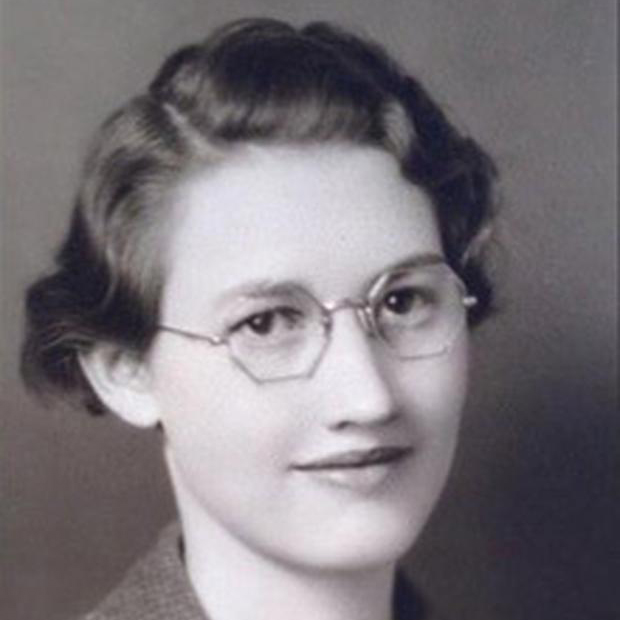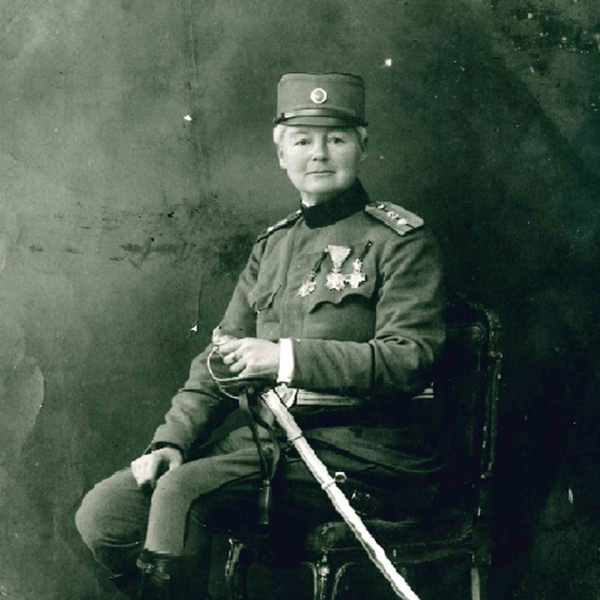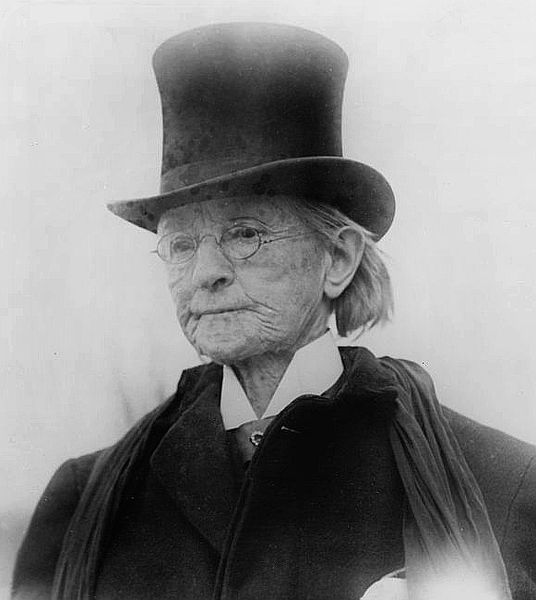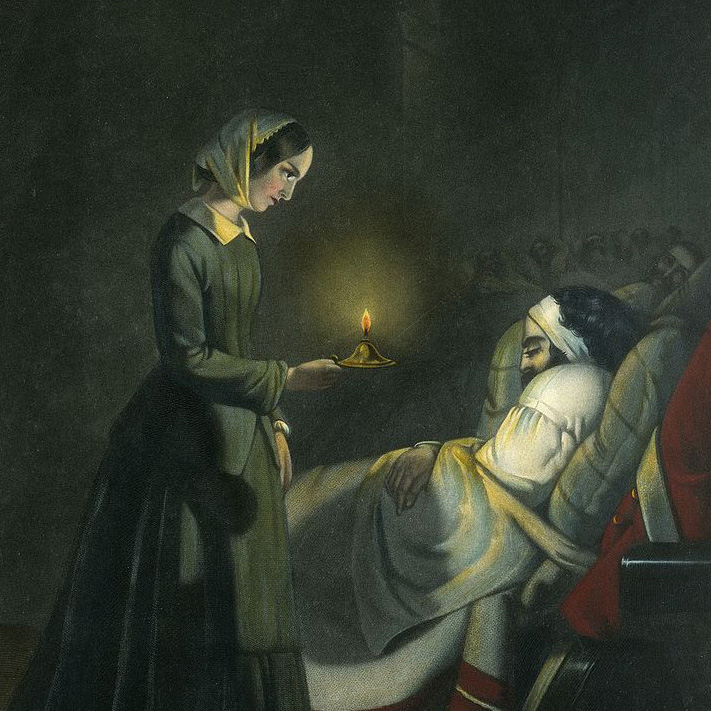Although her name is unrecognizable to most Americans, Ellen Ainsworth was one of the first four women in the Army to receive the Silver Star as well as being the only woman from Wisconsin serving in the U.S. Armed Forces during World War II to die as a direct result of enemy fire.
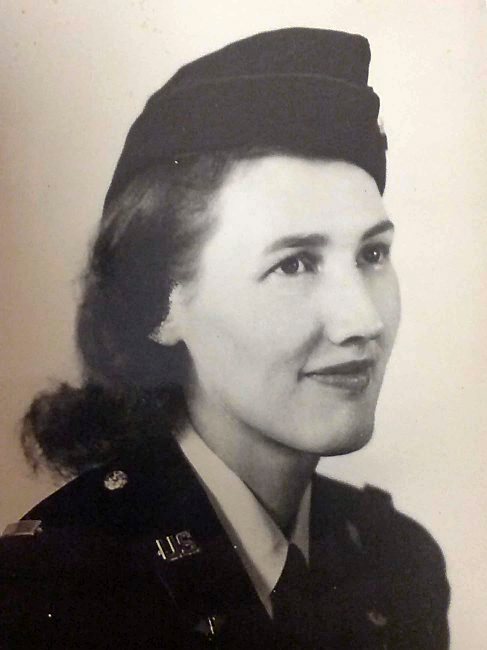
Who Was Ellen Ainsworth?
Born on March 9, 1919, Ainsworth had an inauspicious beginning, growing up in a small farming community of Wisconsin. She was the youngest of three siblings and attended nursing school at Eitel Hospital School of Nursing in Minneapolis, graduating in 1941. Even though she could have become a nurse at a private hospital in the Twin Cities, Ainsworth signed up for the U.S. Army Nurse Corps in March 1942.
Although nurses were highly encouraged to join the armed forces, Ainsworth also had a longing to see and experience the world, which is exactly what she ended up doing in her short life of 24 years. She was sent first to Morocco, then to Tunisia, and then to Salerno, Italy in September 1943. Several months later, Ainsworth was sent to Anzio, Italy where the Allies—Americans and British—had made a surprise landing behind German lines, but her travels would stop there.
Anzio was a battle that was only expected to take a couple weeks ended up taking several months, and Anzio would see some of the most savage fighting of World War II. Over the four-month period, the nurses and medical personnel at Anzio would care for more than 33,000, including 10,800 who had suffered battle wounds.
Ellen Ainsworth and the U.S. Army Nurse Corps
Of the sixteen women in the U.S. Army Nurse Corps were killed directly from enemy fire during World War II, six of them were killed at Anzio. Ellen Ainsworth was one of those six.
Assigned to the 56th Evacuation Hospital, which they called “a Half Acre of Hell,” Ainsworth cared for the wounded men at Anzio for only a few short weeks from late January until her eventual death on February 16, 1944. But she was able to make such an impact in that short time!
On February 12, 1944, the nurses of the 56th Evacuation Hospital rushed patients to nearby bunkers during a massive artillery bombardment. Ainsworth realized that some medical personnel needed to remain behind at the hospital tent to take care of the wounded, so she chose to stay. A German artillery round landed just outside the tent, and a piece of shrapnel penetrated Ainsworth’s chest close to her lungs. Even though she was wounded, Ainsworth continued to treat her patients.
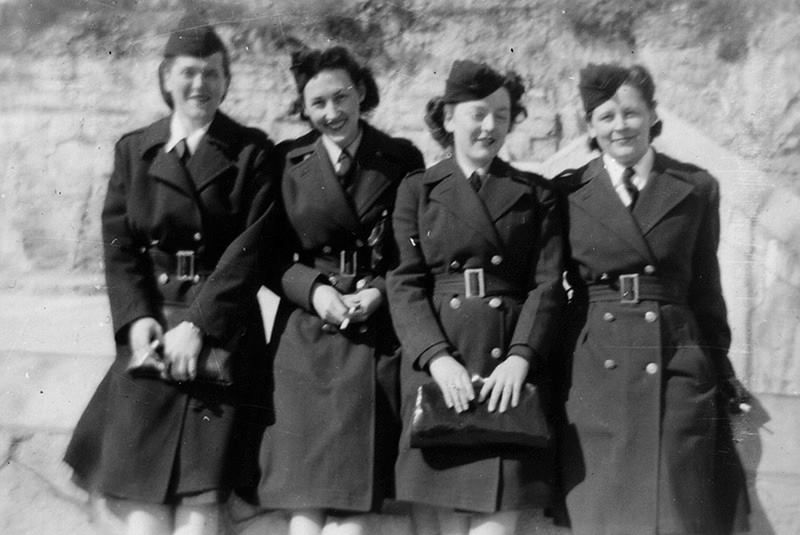
Ainsworth was eventually evacuated, but her condition worsened. Slowly suffocating from internal wounds, Ainsworth died on February 16, 1944. She was just 24 years old. On March 9, which would have been Ainsworth’s 25th birthday, her family back in Wisconsin instead received a telegram informing them that Ainsworth had died.
Ellen Ainsworth's Medals
Due to her actions of bravery, including evacuating 42 patients to safety in complete disregard of the danger with three other nurses, Ainsworth and the other women became the first women in the Army to receive the Silver Star for their bravery (the third highest award for bravery after the Medal of Honor and Distinguished Service Cross/Navy Cross/Air Force Cross/Coast Guard Cross). Ainsworth would also posthumously receive the Purple Heart and Red Cross Bronze medals, a rare accomplishment for a nurse in World War II. She is also remembered with a portrait in the Pentagon, and the post office in her hometown of Glenwood City, Wisconsin was renamed in her honor in 2016.
Ellen Ainsworth’s Silver Star Citation
Because her mother was ill when Ainsworth’s family received the news that she had been killed, her family chose to have her buried in the Sicily-Rome American Cemetery and Memorial in Nettuno, Italy. Ainsworth is one of nearly 7,900 Americans buried at the cemetery.
The Legacy of Ellen Ainsworth
Although Ainsworth only lived for 24 years, family and friends still remember her fondly, recalling how great of a sense of humor that she had. When she was evacuated due to the shrapnel, she made a cheeky comment to her fellow nurses that was something like, “Nothing these Krauts can do to scare at this point.”
Her fellow nurses knew her as an outgoing, fun-loving individual, and her friends and family back home knew her as a caring girl who loved to sing (and had a beautiful voice!). These two elements came together for Christmas 1943 when Ainsworth wanted to bring some cheer to the troops in Italy, so she organized a group of people to sing Christmas carols over the PA system.
Her fellow nurses remembered her not only as the life of the party but also someone to tried to make every situation better. Even so, Ainsworth was immensely affected by the gruesomeness all around her.
Ainsworth’s sister Lyda wrote a speech in the 1970s that she presented at the dedication of a health clinic to Ainsworth and spoke of a letter she received from her sister Ellen. That letter was tear-stained, as Ellen wrote about the suffering of “her boys.” She wished that she could do more to protect them, ease and comfort their pain, or halt their deaths, but there was so little she could do.
Ainsworth was not one to shirk duty, as is evident from her actions in choosing to stay with the wounded and risk death herself. Ainsworth was willing to pay the ultimate price to take care of “her boys,” and she did. But although her family and friends would greatly mourn her death, they took comfort in the fact that Ainsworth lived a full life for the short time she lived.

